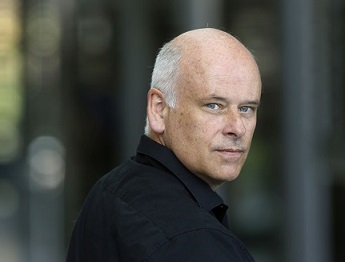News Archive
Robert Tampé receives ERC Advanced Investigator Grant
 April 2018. One of the prestigious ERC Advanced Investigator Grants of the European Research Council has been awarded to Robert Tampé at Goethe Universität Frankfurt. The biochemist, who wants to unravel the winding pathways of the immune system inside the cell, will receive 2.5 million Euro over 5 years for his ground-breaking research project.
April 2018. One of the prestigious ERC Advanced Investigator Grants of the European Research Council has been awarded to Robert Tampé at Goethe Universität Frankfurt. The biochemist, who wants to unravel the winding pathways of the immune system inside the cell, will receive 2.5 million Euro over 5 years for his ground-breaking research project.
Although the immune system is one of the most complex systems in the human body – with many different types of immune cells as well as transport and messenger molecules - pathogens and cancer cells manage to outwit it over and over again. Herpes and smallpox viruses, for example, have developed ingenious strategies to attack specific pathways in the body’s immune system.
A virus that has penetrated the cell is normally disassembled in a kind of molecular shredder (proteasome) and then transported to the cell’s surface where it is presented to the T cells of the immune system. Herpes and smallpox viruses manage, however, to remain hidden in the cell by attacking the transport molecule that is supposed to carry them to the surface.
Known so far is that small pieces of proteins (peptides) from the proteasome are processed by a large macromolecular complex and many helper molecules in preparation for their journey to the cell’s surface. This is known as the peptide-loading complex and sits in the endoplasmic reticulum, the “cell’s engine room”. In this highly folded system of membrane-enclosed cavities, proteins are produced, folded, checked and prepared for their journey to the cell’s surface.
Robert Tampé from the Institute of Biochemistry explains the project: “My goal is to study the antigen processing mechanism in detail. With this research, we are setting off along one of the thorniest paths in the life sciences because we’re dealing with large molecules with different assemblies which are moreover relatively rare in intercellular membranes.” However, since his research group has succeeded in recent years in shedding light on some important structures in the peptide-loading complex and their functions, he is well prepared for the new project. “We expect that our work will have a considerable influence on many areas of the life sciences, especially in the field of cancer research as well as infectious and autoimmune diseases,” says Tampé.
Contact:
Robert Tampé, Institute of Biochemistry, Faculty of Biochemistry, Chemistry and Pharmacy, Riedberg Campus, Goethe University, Frankfurt am Main, Germany, Tel.: +49(0)69-798-29475, tampe@em.uni-frankfurt.de.
Press release Goethe University Frankfurt

